Sonos One review: still one of the best smart speakers, and an ideal multi-room starter
It's not new, but the Sonos remains a class-leading Wi-Fi speaker, thanks partly to being a smart speaker with both Alexa and Google Assistant built-in

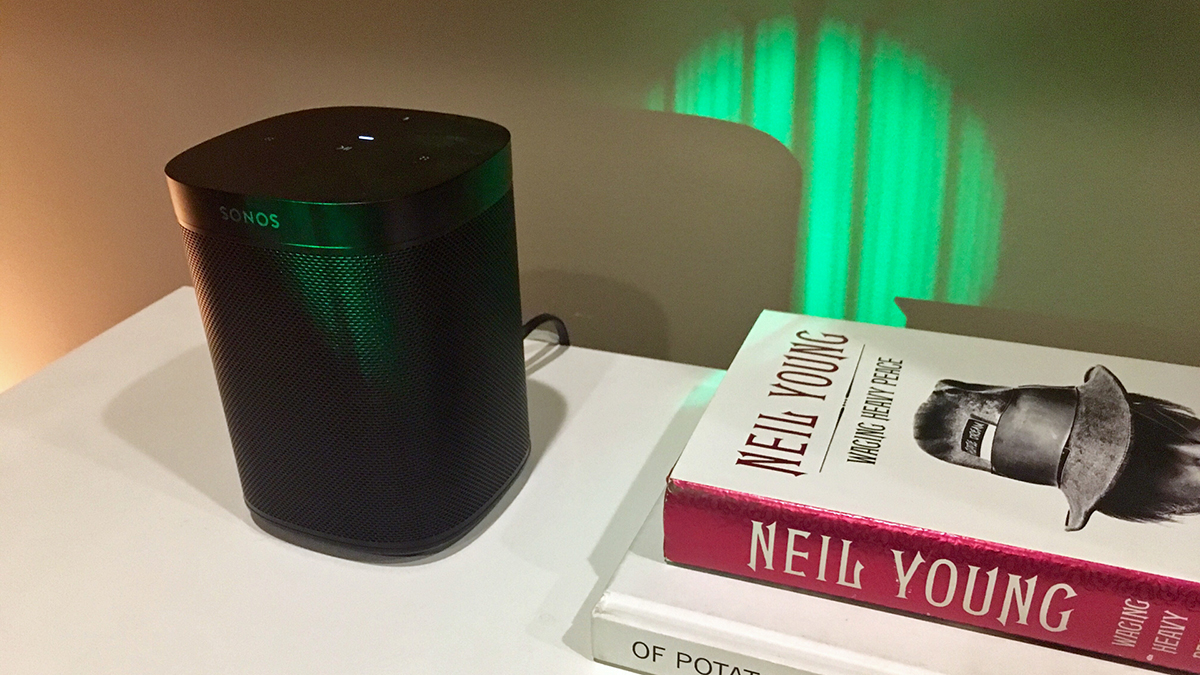
The Sonos One is a small speaker with refined and crowd-pleasing audio quality, in a nicely designed shell. That it's also one of the most versatile smart speakers on the planet is the icing on the cake, especially with all the other great streaming support on offer.
-
+
Excellent sound quality
-
+
Nice, compact design
-
+
Alexa and Google Assistant built-in
-
+
Lots of streaming options
-
-
Bass could be deeper
-
-
No Bluetooth
Why you can trust T3
In this Sonos One review, we're looking at whether this smart speaker is still the one to beat in 2021 – years after its debut. And the short answer is yes – with updates since its launch adding Google Assistant as well as Alexa, it's an ideal addition which ever side of the smart home line you live on.
But the Sonos One isn't just one of the best smart speakers – the reason we like it so much is that it's also one of the best-sounding speakers of its size and in its price range. With support for Sonos' multi-room system as well as Apple AirPlay 2 Wi-Fi streaming built in, it's also really platform-neutral – you can play music from your favourite services over Alexa, Google, Sonos' app or AirPlay. Easy!
It's not perfect: its microphones aren't as good at picking up voices as dedicated smart speakers such as the Amazon Echo 4th Gen or Google Nest Audio; and it doesn't include Bluetooth, so you're limited to streaming to it using supported Wi-Fi services.
But we see those as minor issues – this is made to be one of the best wireless speakers, and has smart assistant features to make it easier to play your music on, and in that, it totally succeeds. If you music is your focus, this is a major improvement on the Echo or Nest equivalents.
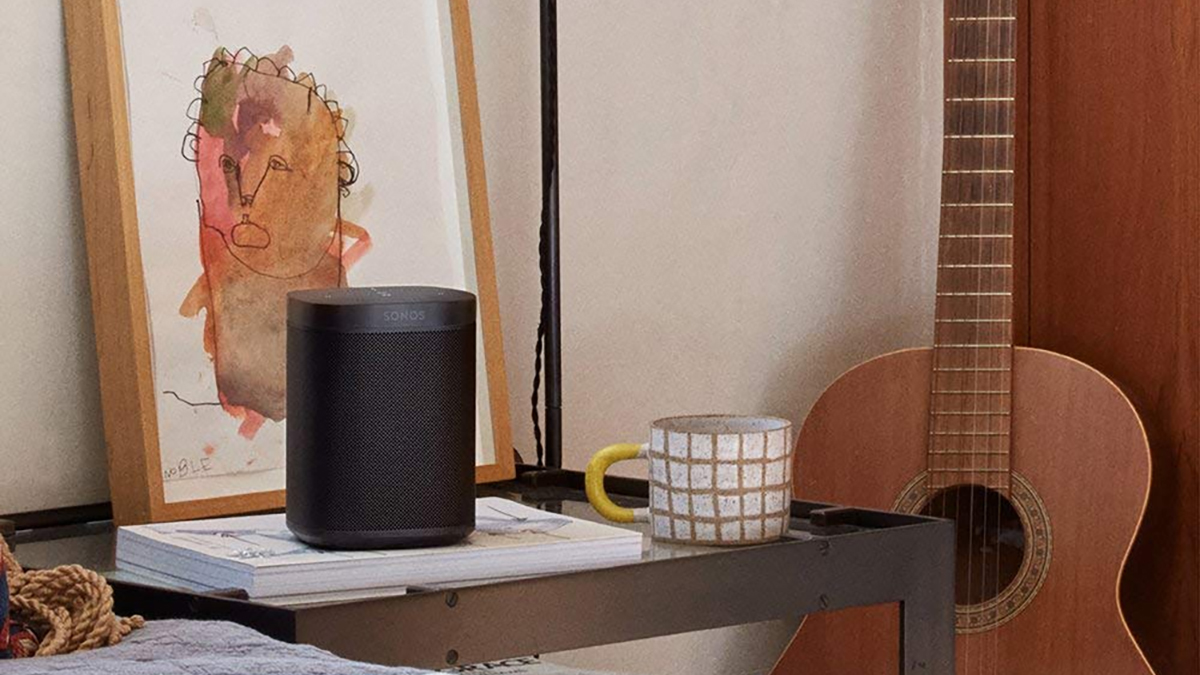
Sonos One review: Features & what's new
Despite looking a lot like Sonos' old Play:1 speaker, except the colour choices are now Very Black or Totally White, the Sonos One is almost entirely redesigned on the inside.
The most important parts are the quad-core processor and six-mic array letting it serve as an AI assistant as well as a multi-room wireless speaker. The boosted processing power has enabled it to be updated and adapted over time – Google Assistant support was added more recently than its original Alexa support, for example. It is a true 'platform' rather than just a Wi-Fi speaker with knobs on, as Sonoses (Soni?) had previously been.
You can use voice commands to get tunes from services that work with the available voice assistants, but you can also tell the speaker to play through your other Sonos speakers ("Play Lady Gaga in the kitchen"), even if they are older ones that are not Alexa-compatible.
You can pair two Sonos One speakers in stereo to use them as a wireless alternative to bookshelf speakers, or use them as rear speakers in a surround sound setup with a Sonos Beam or Sonos Arc soundbar. It's all very seamless to do – it's very impressive.
Sonos speakers now support over 100 3rd party streaming services – mainly music, but also smart home – with more rolling out via an open API and 'favoured partner' programme on an ongoing basis.
The whole Sonos range also supports Apple AirPlay 2, which means that if you have Apple gear, you can use that as your streaming method of choice, which includes its own multi-room support. If you have non-Sonos AirPlay speakers (such as the HomePod Mini), you can even use the Sonos One in a multi-room system that mixes and matches speakers from different makers over AirPlay.
Sonos, in short, has fully abandoned its original, walled garden approach so its largely excellent speakers can act as the output for all the key music services. Sonos wants to be the default musical part of your smart home, and the output for whatever content streaming services you happen to favour.
Despite that, it has now spruced up its own app, which now promises to offer easier access to your music and less head-bangingly irritating control of multi-room.
As an extra-cool feature, as you use Alexa to use music, the Sonos app updates to show that, letting you move seamlessly between voice and mobile control. And there are still buttons (well, touch controls) on the top of the Sonos One, so there's always that option, too.

Sonos One review: Sound quality
The Sonos One really impresses with how nimble and clear it is. Vocals are clear and elevate from the music, while individual instruments dance out of the overall mix clearly.
There isn't a huge amount of bass, but it's no worse in this regard than other speakers of its size – you have to step up a bit to something like the Naim Mu-so Qb 2nd Gen (which is three times the price and notably larger) for a real improvement in this area.
Even if it can't dig too deep, the overall soundstage absolutely feels representative and well-balanced. Mids are warm while still feeling accurate, and even when songs get complex, it feels every individual part is well-defined.
The treble stands out from the mid mix nicely, and the Sonos One can be crisp without getting too harsh with it. Everything is refined but full.
Pairing two into stereo doesn't add a huge amount to the sound, other than filling a room more easily than one, and adding distinct left/right effects when you're between them. If you want a stereo presentation with hi-fi quality sound, two Sonos One speakers is stunningly good value, I have to say.
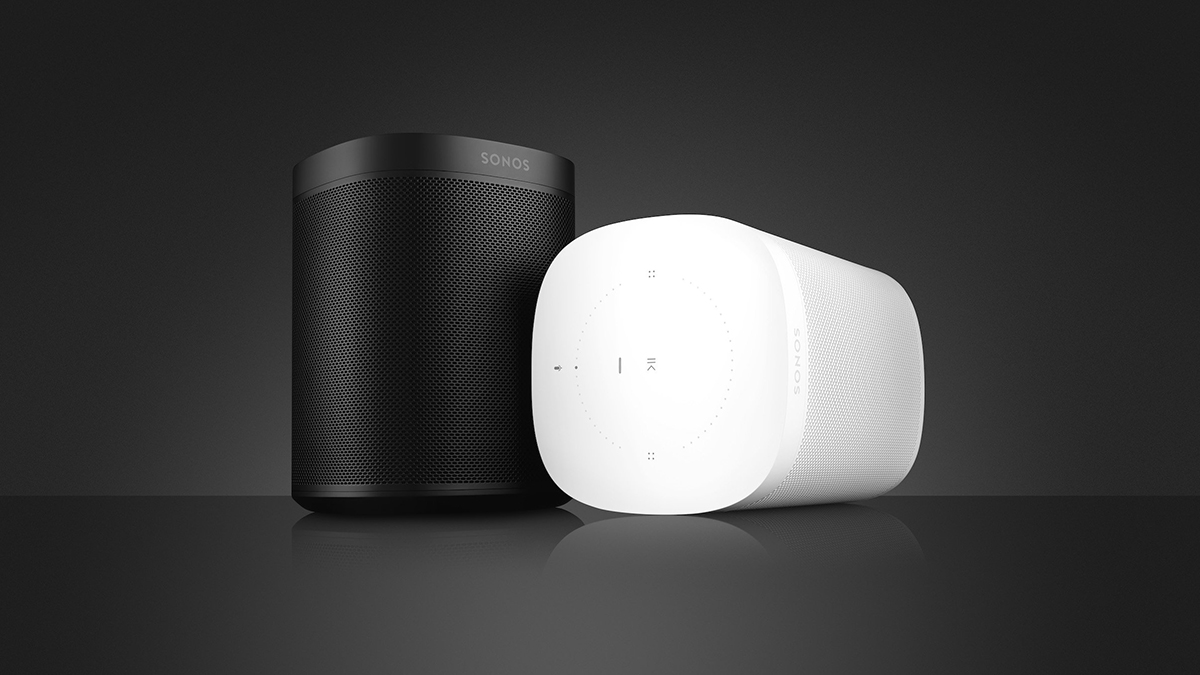
Sonos One review: Verdict
The Sonos One is undoubtedly the best wireless speaker in its size and price bracket – and offering both Alexa and Google Assistant support makes it one of the most versatile smart speakers, too.
It doesn't just sound excellent for the money, it's also a great package of features overall – and it's a great start to your multi-room speaker collection.
Sonos One review: Also consider
If you want something with even better microphone and voice-recognition abilities, the Amazon Echo 4th Gen is the best smart speaker with the smarts in mind, in T3's view. It doesn't sound as good as this, and it doesn't look as nice either, but if Alexa is your priority, it's the machine of choice.
If you want something similarly focused on hi-fi quality but smaller, we rate the HomePod Mini highly – as long as you're an Apple user. Android users should stick with an Echo Dot or Nest Mini, though they don't sound as good.
And if you want the ultimate in wireless streaming stereo speakers, you might like Bowers & Wilkins Formation Duo, which are truly elite bookshelf speakers made for modern music playback. But while you can't help but love their price, you may find the price a little steep… they cost 10 times what the Sonos One does…
Sign up to the T3 newsletter for smarter living straight to your inbox
Get all the latest news, reviews, deals and buying guides on gorgeous tech, home and active products from the T3 experts
Matt is T3's former AV and Smart Home Editor (UK), master of all things audiovisual, overseeing our TV, speakers and headphones coverage. He also covered smart home products and large appliances, as well as our toys and games articles. He's can explain both what Dolby Vision IQ is and why the Lego you're building doesn't fit together the way the instructions say, so is truly invaluable. Matt has worked for tech publications for over 10 years, in print and online, including running T3's print magazine and launching its most recent redesign. He's also contributed to a huge number of tech and gaming titles over the years. Say hello if you see him roaming the halls at CES, IFA or Toy Fair. Matt now works for our sister title TechRadar.
-
 The new Mercedes Vision V concept might be the coolest van I’ve ever seen
The new Mercedes Vision V concept might be the coolest van I’ve ever seenThe interior of this Mercedes van looks more luxurious than a private jet
By Alistair Charlton Published
-
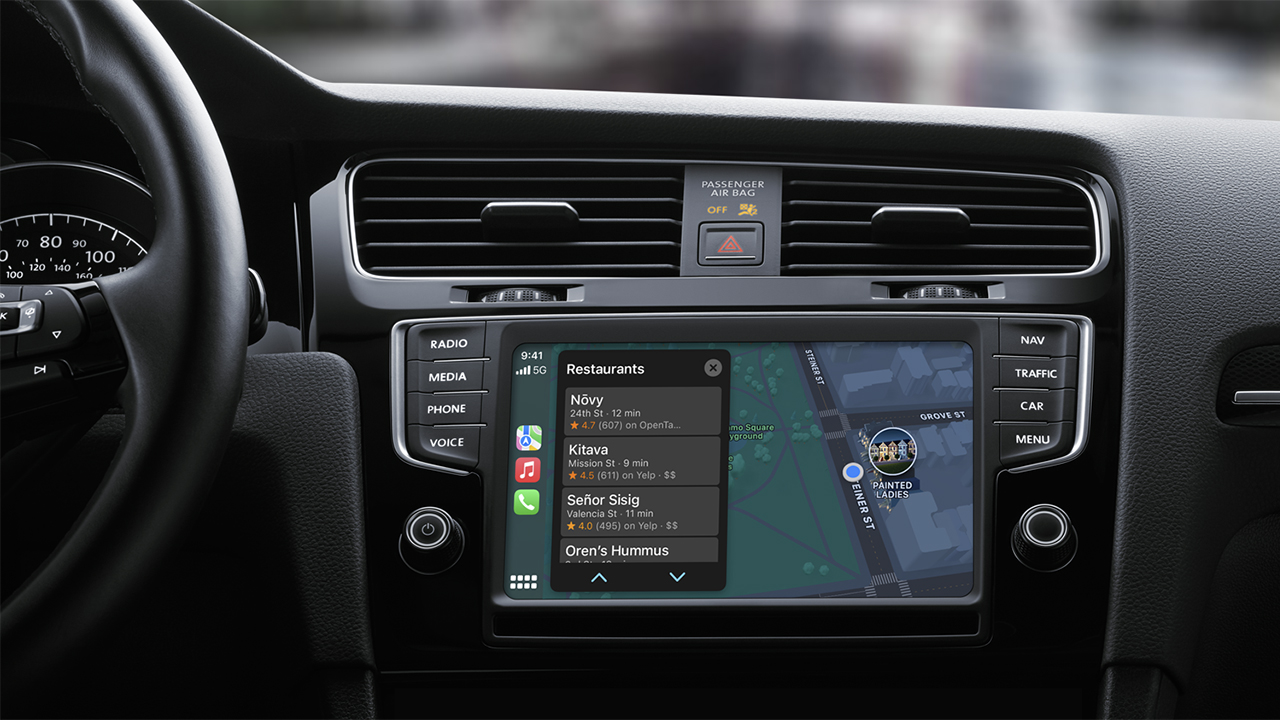 One of Apple CarPlay's new Tesla-like features will soon be removed again
One of Apple CarPlay's new Tesla-like features will soon be removed againJust when you thought you could watch Netflix through CarPlay
By Rik Henderson Published
-
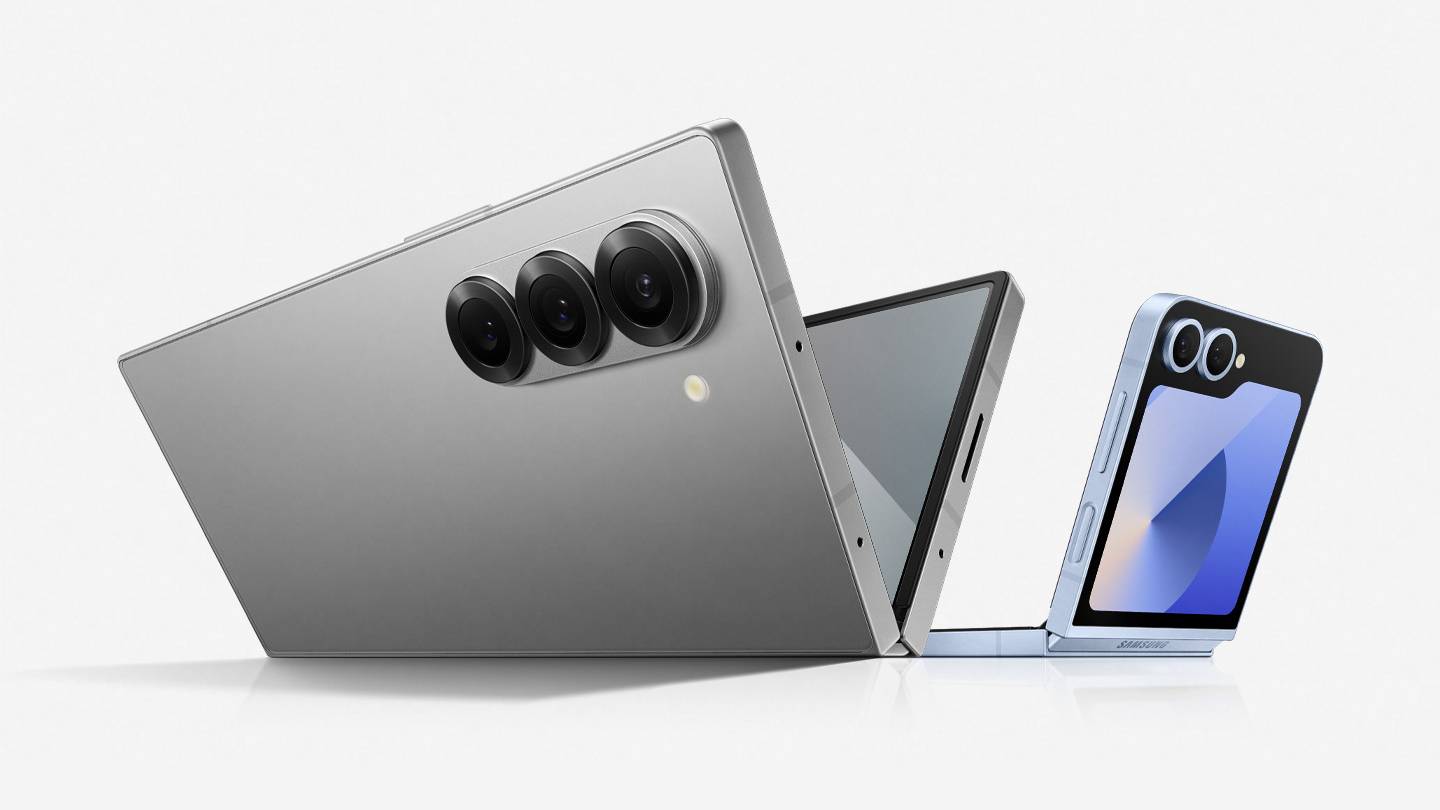 Expected Samsung foldables could arrive later than expected this year
Expected Samsung foldables could arrive later than expected this yearIt could be a late launch for these foldables
By Sam Cross Published

